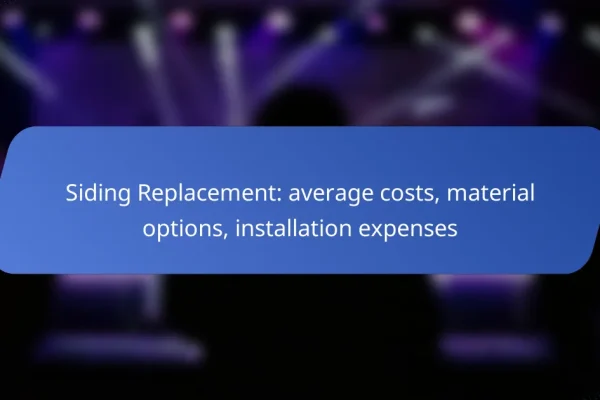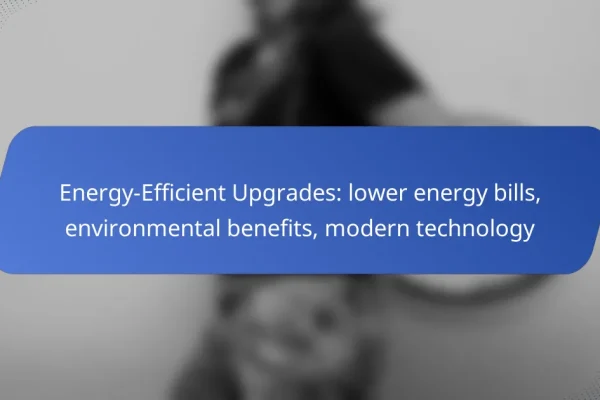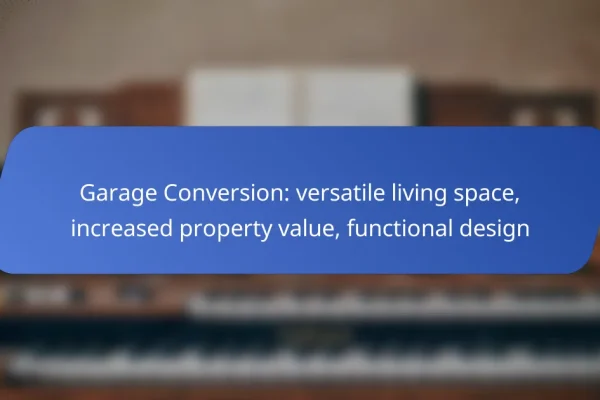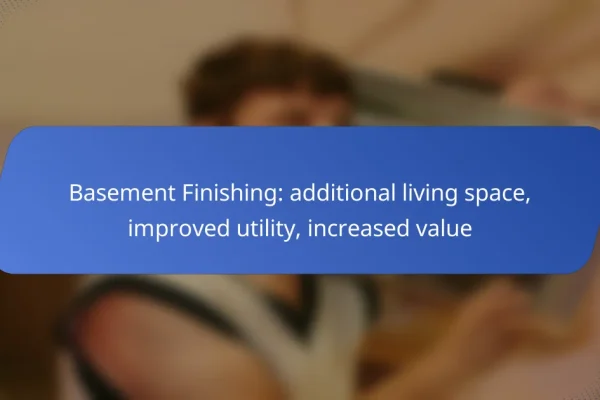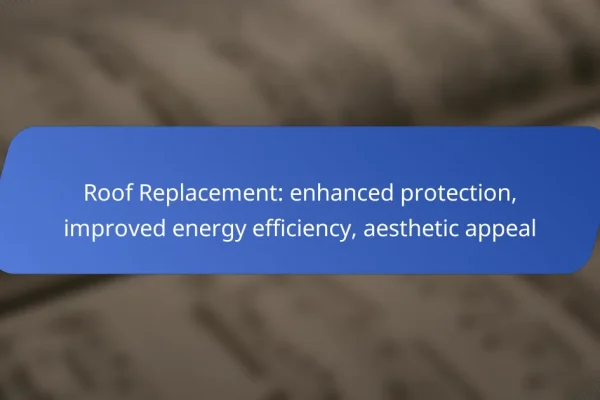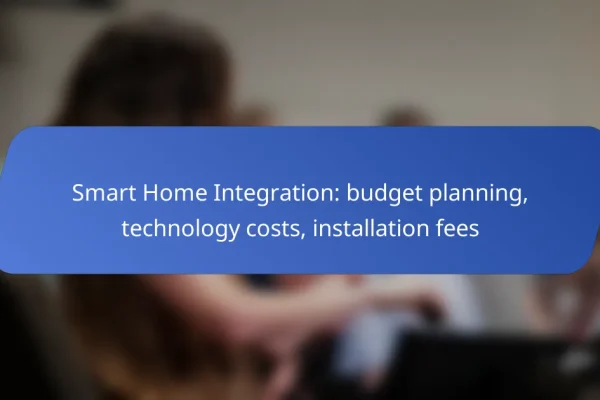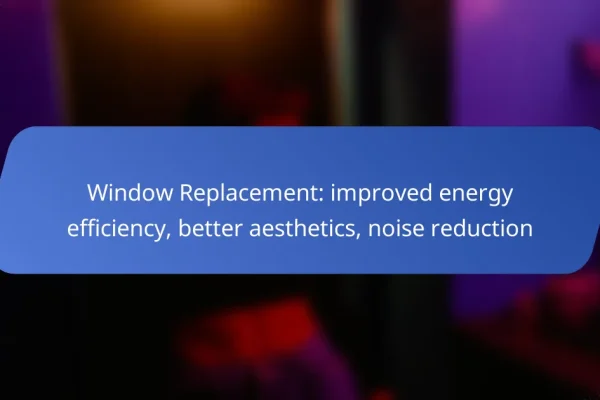What are the benefits of home renovation projects in the UK?
Home renovation projects in the UK offer several advantages, including increased property value, improved energy efficiency, and enhanced aesthetics. These benefits not only elevate the living experience but can also lead to significant financial returns when selling the property.
Increased property value
One of the primary benefits of home renovation is the potential for increased property value. Upgrading kitchens and bathrooms, adding extensions, or enhancing curb appeal can lead to substantial returns on investment, often ranging from 10% to 20% depending on the improvements made.
When considering renovations, focus on high-impact areas that buyers prioritize. Research local property trends to identify which upgrades are most valued in your area, as this can guide your renovation choices effectively.
Enhanced energy efficiency
Renovations can significantly improve a home’s energy efficiency, leading to lower utility bills and a reduced carbon footprint. Upgrading insulation, installing energy-efficient windows, and incorporating smart home technology are effective strategies to enhance efficiency.
In the UK, homeowners may also benefit from government incentives for energy-efficient upgrades, such as grants or tax rebates. These financial aids can help offset renovation costs while promoting sustainable living.
Improved aesthetics
Home renovations can dramatically enhance the aesthetics of a property, making it more inviting and enjoyable. Updating paint, flooring, and fixtures can create a fresh, modern look that reflects personal style.
Consider hiring a professional designer or utilizing online tools to visualize changes. A cohesive design plan can make a significant difference in achieving a polished and appealing space.
Better functionality
Renovating a home often improves its functionality, making spaces more usable and efficient. This can involve reconfiguring layouts, adding storage solutions, or creating open-plan living areas that cater to modern lifestyles.
When planning renovations, assess your daily routines and identify areas where functionality could be enhanced. Small changes, like adding built-in shelving or optimizing kitchen layouts, can make a big impact on daily living.
Personalized living space
Home renovations allow for the creation of a personalized living space that meets individual needs and preferences. Customizing areas such as home offices, entertainment rooms, or outdoor spaces can enhance comfort and satisfaction.
Engage with contractors and designers to explore options that align with your vision. Personal touches, such as unique finishes or bespoke furniture, can transform a standard home into a truly unique environment.
How do home renovations impact property value?
Home renovations can significantly enhance property value by improving aesthetics, functionality, and energy efficiency. Well-planned upgrades often yield a return on investment, making properties more attractive to potential buyers.
Kitchen remodels yield high returns
Kitchen remodels are among the most effective renovations for increasing property value. A modern kitchen with updated appliances, countertops, and cabinetry can yield returns of 60% to 80% or more on investment. Consider focusing on popular features like open layouts, energy-efficient appliances, and quality materials.
When planning a kitchen remodel, prioritize functionality and style. Simple updates like new fixtures or a fresh coat of paint can also make a significant impact without the need for a complete overhaul.
Bathroom upgrades increase market appeal
Upgrading bathrooms can greatly enhance market appeal and attract buyers. Features such as modern fixtures, improved lighting, and high-quality materials can lead to returns of 50% to 70% on investment. Consider adding double sinks or a walk-in shower to appeal to families and busy professionals.
Keep in mind that cleanliness and maintenance are crucial. Even minor updates, like new tiles or a fresh vanity, can elevate the overall look and feel of the space.
Outdoor improvements enhance curb appeal
Outdoor improvements play a vital role in enhancing curb appeal, which can influence a buyer’s first impression. Landscaping, new siding, or a fresh coat of paint on the front door can yield returns of 50% to 100% on investment. Simple additions like flower beds or outdoor lighting can make a significant difference.
When considering outdoor renovations, focus on creating an inviting atmosphere. Ensure that pathways are clear and well-maintained, and consider adding functional outdoor spaces like patios or decks for added value.
What are common types of home renovation projects?
Common types of home renovation projects include kitchen renovations, bathroom remodels, basement conversions, and extensions or additions. Each type addresses specific needs and can significantly enhance the functionality and value of a home.
Kitchen renovations
Kitchen renovations often focus on updating appliances, cabinetry, countertops, and flooring. A well-planned kitchen remodel can improve workflow and increase the home’s resale value.
Consider factors such as layout, storage solutions, and energy-efficient appliances. Budgeting for a kitchen renovation typically ranges from a few thousand to tens of thousands of dollars, depending on the extent of the changes.
Bathroom remodels
Bathroom remodels can involve upgrading fixtures, improving layout, or enhancing aesthetics. Popular updates include new vanities, modern showers, and energy-efficient toilets.
When planning a bathroom remodel, think about maximizing space and ensuring proper ventilation. Costs can vary widely, often falling between a few thousand to over twenty thousand dollars, based on the project’s scope.
Basement conversions
Basement conversions transform underutilized spaces into functional areas such as guest suites, home offices, or recreational rooms. This type of renovation can significantly increase living space without expanding the home’s footprint.
Key considerations include moisture control, insulation, and egress requirements for safety. Budgeting for a basement conversion usually ranges from several thousand to tens of thousands of dollars, depending on the complexity of the project.
Extensions and additions
Extensions and additions involve expanding the existing structure to create more living space. This can include adding new rooms, expanding kitchens, or building sunrooms.
When planning an extension, consider local zoning laws, building codes, and the overall design to ensure it complements the existing home. Costs for extensions can vary widely, often starting from tens of thousands to hundreds of thousands of dollars, depending on size and materials used.
What factors should be considered before starting a renovation?
Before starting a renovation, it’s essential to evaluate several key factors that can significantly impact the project’s success. These include budget constraints, timeline for completion, and local building regulations, all of which play a crucial role in planning and executing a renovation effectively.
Budget constraints
Establishing a clear budget is vital for any renovation project. Determine how much you can afford to spend, including costs for materials, labor, and unexpected expenses. A common recommendation is to set aside an additional 10-20% of your budget for unforeseen costs.
Consider prioritizing your renovation goals based on your budget. For instance, if you aim to enhance your kitchen and bathroom, allocate more funds to those areas while keeping other renovations minimal. This approach helps ensure that you achieve the most impactful improvements within your financial limits.
Timeline for completion
Creating a realistic timeline is crucial for managing expectations and ensuring that your renovation stays on track. Assess how long each phase of the project will take, from planning and permits to construction and finishing touches. A typical home renovation can take anywhere from a few weeks to several months, depending on the scope of work.
To avoid delays, communicate clearly with contractors and suppliers about deadlines. Regularly check in on progress and be prepared to adjust your timeline if unexpected issues arise. This proactive approach helps maintain momentum and reduces frustration throughout the renovation process.
Local building regulations
Understanding local building regulations is essential before starting any renovation. These rules govern what changes can be made to your property and often require permits for significant work. Check with your local government or building authority to ensure compliance and avoid potential fines or legal issues.
Familiarize yourself with zoning laws, safety codes, and any restrictions specific to your area. For example, some neighborhoods may have guidelines on the types of materials used or the height of structures. Adhering to these regulations not only keeps your project legal but can also enhance the overall value of your home.
How can homeowners finance renovation projects?
Homeowners can finance renovation projects through various methods, including personal loans, home equity lines of credit (HELOCs), and government programs. Each option has its own benefits and considerations, making it essential to evaluate which method aligns best with financial goals and project needs.
Personal loans
Personal loans are unsecured loans that can be used for home renovations. They typically have fixed interest rates and repayment terms ranging from three to seven years. Homeowners should compare offers from different lenders to find the best rates and terms.
When considering a personal loan, it’s crucial to assess your credit score, as this will impact the interest rate you receive. Generally, a higher credit score leads to lower rates, making it more affordable to finance your renovation.
Home equity lines of credit (HELOCs)
A HELOC allows homeowners to borrow against the equity in their home, providing a flexible financing option for renovations. This type of loan typically has a variable interest rate and a draw period during which you can access funds, followed by a repayment period.
Homeowners should be cautious with HELOCs, as they put their home at risk if they cannot repay the loan. It’s advisable to borrow only what is necessary and to have a clear plan for repayment to avoid financial strain.
Government programs
Various government programs can assist homeowners with renovation financing, particularly for energy-efficient upgrades or low-income households. Programs such as the Federal Housing Administration (FHA) 203(k) loan allow homeowners to finance both the purchase and renovation of a home in one mortgage.
Researching local and federal programs can uncover valuable resources. Homeowners should check eligibility requirements and application processes to take advantage of these opportunities effectively.
